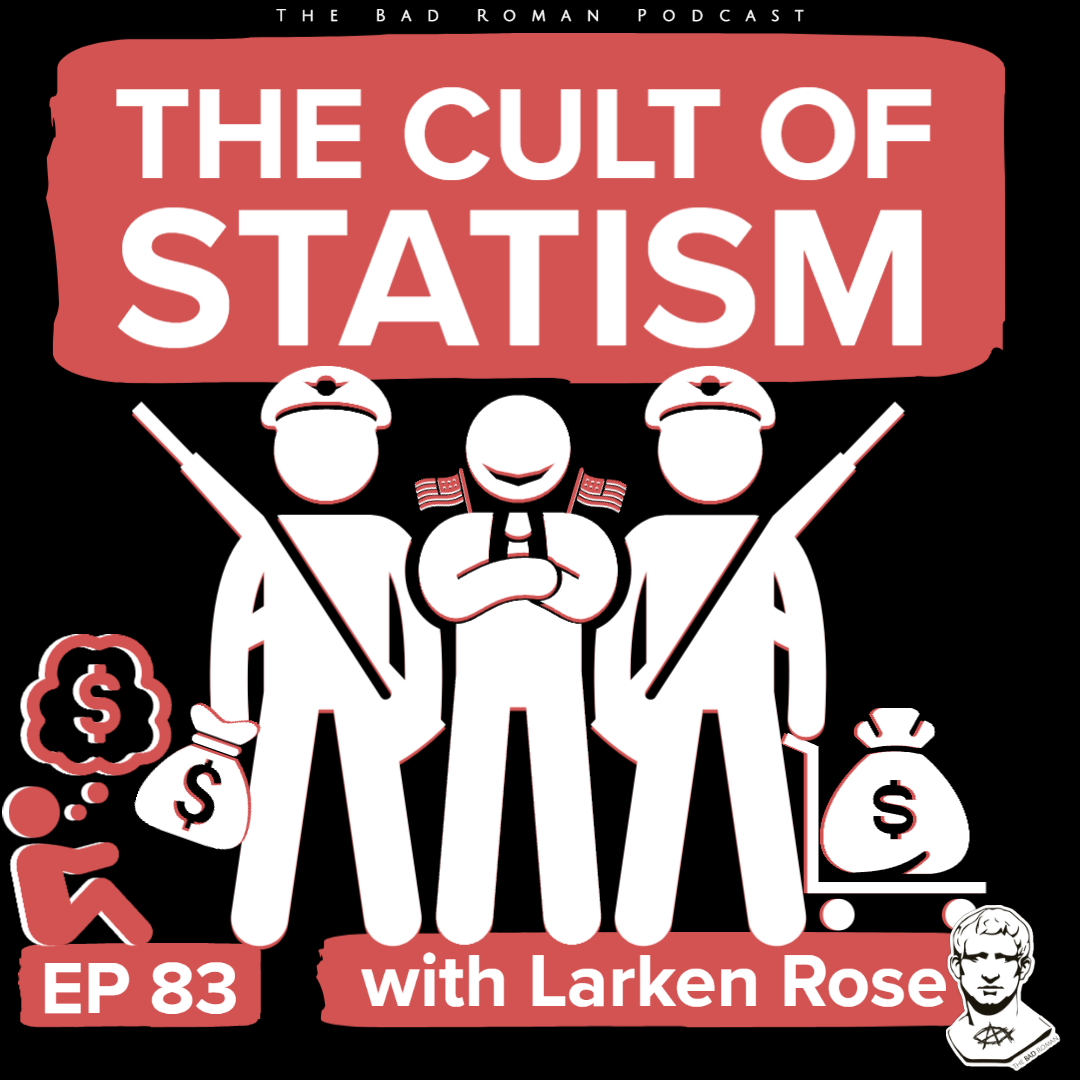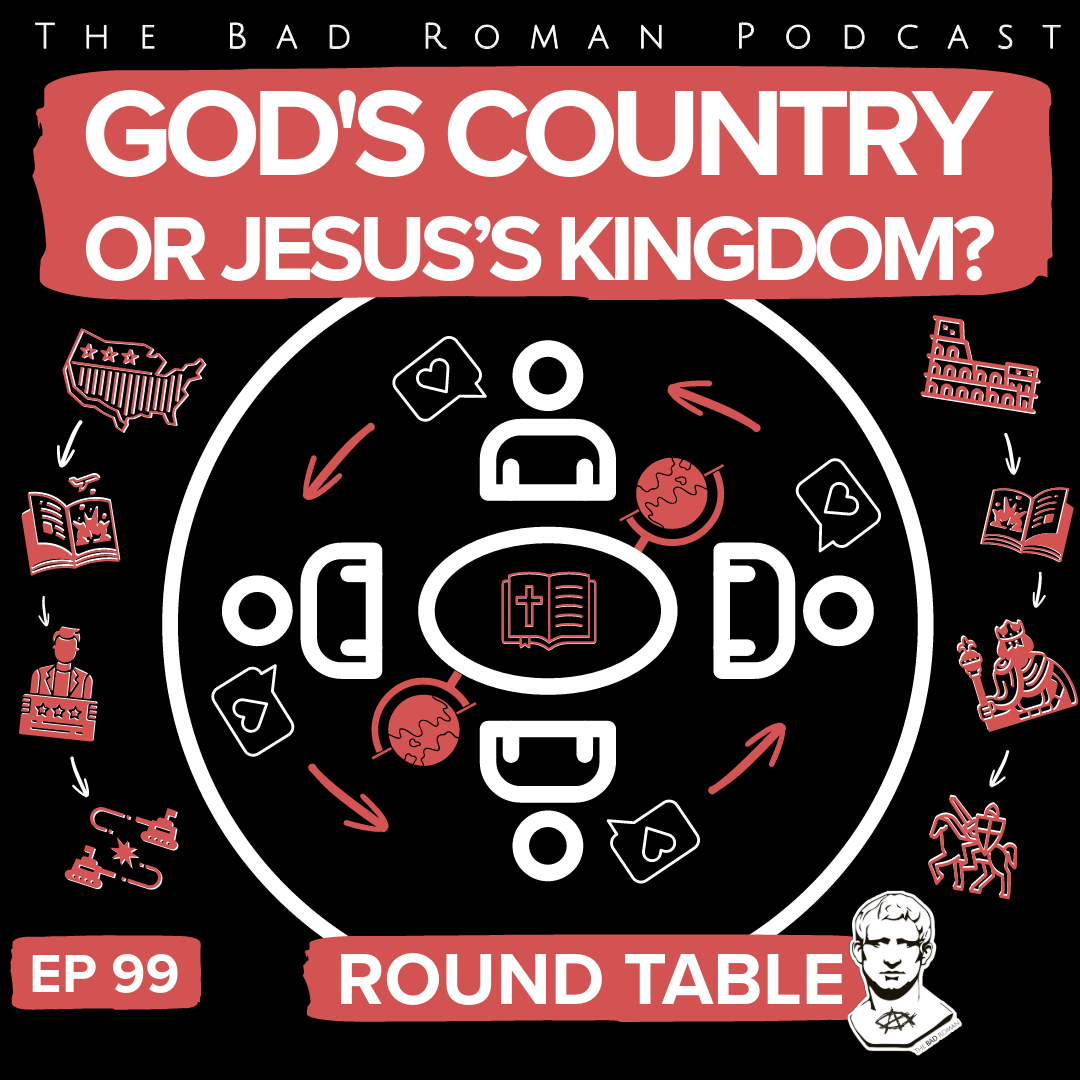About this Episode
Are you among those who grew up with traditional Christian values yet find yourself questioning the relationship between your faith and political matters? If so, you're not alone. In this energetic episode of the Bad Roman Podcast, host Craig engages with the thought-provoking Reverend Caleb Lines in a discussion that may challenge the core of your theological understanding.
Why was Jesus crucified? Was it a political statement against the empire, or was it a divine act of atonement for humanity's sins? Reverend Lines, coming from a progressive Christian standpoint, proposes a provocative notion in his sermon "Jesus was crucified for standing up to empire and not to atone for the sins of humanity." This episode delves into the rich historical and political backdrop of Jesus' crucifixion, compelling listeners to revisit and potentially revise their conventional beliefs.
The conversation further delves into the concept of atonement as depicted in the New Testament. We examine the contrasting portrayals of Jesus in the Synoptic Gospels versus John, raising the question: Is there a harmonious theological stance within the New Testament, or does it contain significant discrepancies? Challenging the development of penal substitutionary atonement theory, Reverend Lines and Craig illuminate the intricate nuances found in the New Testament writings, with the aim of fostering a more layered understanding of Jesus' teachings and their modern-day relevance to Christian faith and conduct.
As the episode progresses, we delve into the essence of progressive Christianity. Reverend Lines discusses its foundation in the core teachings of Jesus—advocating for peace, justice, and inclusivity—and its application in today's world, particularly regarding contemporary humanitarian issues. He provides insights into how pastors can lead their congregations in navigating the complex terrain of faith intertwined with politics.
The concept of Christian anarchy is also brought to the fore, examining whether voluntary charity could offer a more effective solution to societal challenges than government interventions. This segment questions the effectiveness of political leaders and suggests that perhaps a more Christ-like approach to societal problems could be more fruitful.
Whether you're firmly rooted in your beliefs or on the cusp of a spiritual reassessment, this episode is a must-listen. It invites you to join a conversation that not only digs deep into theological discourse but also touches upon the pressing social justice issues of our time.
Discover a new perspective on Jesus' crucifixion and its implications for the contemporary Christian journey. Engage with this critical episode of the Bad Roman Podcast, where faith, politics, and social justice intersect.
Connect with Reverend Caleb Lines:
Episode Timestamps:
01:07 Christians' Entanglement With the State
Reverend Caleb Lines introduces his background in progressive Christianity
Jesus' crucifixion, discussing it as a political act against empire as opposed to only for atonement
Historical context of Jesus' execution by the Roman Empire
Conversation on the intersection of faith and politics and the challenge to traditional theological interpretations
07:15 Jesus' Subversive Message
Detailed exploration of Jesus' radical message in its historical context
How this message clashed with the political powers of the time
The role of the crucifixion in the broader political struggle
15:02 Understanding Atonement in New Testament
Unpacking the concept of atonement and contrasting views of Jesus in the Synoptic Gospels and John
Clarification of misconceptions about a unified New Testament theology
Emphasis on historical and political context over penal substitutionary atonement
Examination of Jesus' message of loyalty to God's reign over Roman rule
22:10 Jesus as a Political Figure
Explores the political implications of Jesus' message
How this message was perceived by Roman authority
Jesus' death as a result of his political activism
27:37 Interpretations of Scripture and God
The complexities of being labeled "woke" and addressing humanitarian crises like the situation in Gaza
Role of pastors in facilitating dialogue within their congregations
Conversation on biblical inerrancy and interpretive choices in translations
Stress on the importance of questioning and wrestling with faith
32:45 The Problem of Biblical Literalism
Discussion on the issues with taking biblical text at face value
How different translations can alter meanings and interpretations
Encouragement for a more nuanced approach to biblical interpretation
38:55 Progressive Christianity Defined Through Conversation
Clear articulation of progressive Christianity's core values
Emphasis on Jesus' original teachings of peace, justice, and inclusivity
Misrepresentation of Christianity by the religious right
Communion as a symbol of unity and the breaking of social barriers
44:25 Tackling Misconceptions about Progressive Christianity
Addresses common misunderstandings and criticisms about progressive Christianity
Explores the nuances of the movement's values and beliefs
Highlights the importance of dialogue and understanding
49:39 Christian Anarchy vs Government Accountability
Leveraging nonprofits and social programs in alignment with Jesus' teachings
Concept of Christian anarchy and voluntary charity as alternatives to government intervention
Critically examines political leaders' failures to end military conflicts
Unity among Christians on common issues despite different approaches
54:45 The Call to Social Justice
Discussion on the Christian mandate for social justice
How this mandate can be fulfilled in a modern context
Reflection on the responsibility of the Church in addressing social issues
























